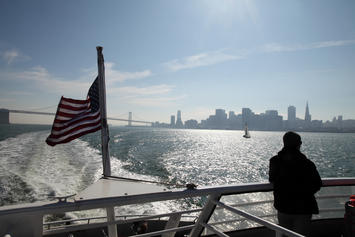
There’s a literary trope in which an ambitious young man goes to work in the mines for a few years to earn an income with which to go back home. In the US it’s bundled into narratives of the Wild West (where incomes were very high until well into the 20th century), but it also exists elsewhere. For example, in The House of the Spirits, the deuterotagonist (who owns an unprofitable hacienda) works in the mines for a few years to earn enough money to ask to marry a society woman. The tradeoff is that working in the mines is unpleasant and dangerous, which is why the owners have to pay workers more money.
More recently, the same trope has applied in the oil industry. People who work on oil rigs, which as a rule are placed in remote locations, get paid premiums. Remote locations with oil have high incomes and high costs in North America, but even the Soviet Union paid people who freely migrated to Siberia or the far north extra. The high wages in this industry are especially remarkable given that the workers are typically not university-educated or (in the US) unionized; they cover for poor living conditions, and a hostile environment especially for families.
Read the entire piece at Pedestrian Observations.
Photo: Caroline Culler (User:Wgreaves) [CC BY-SA 3.0 or GFDL], from Wikimedia Commons












